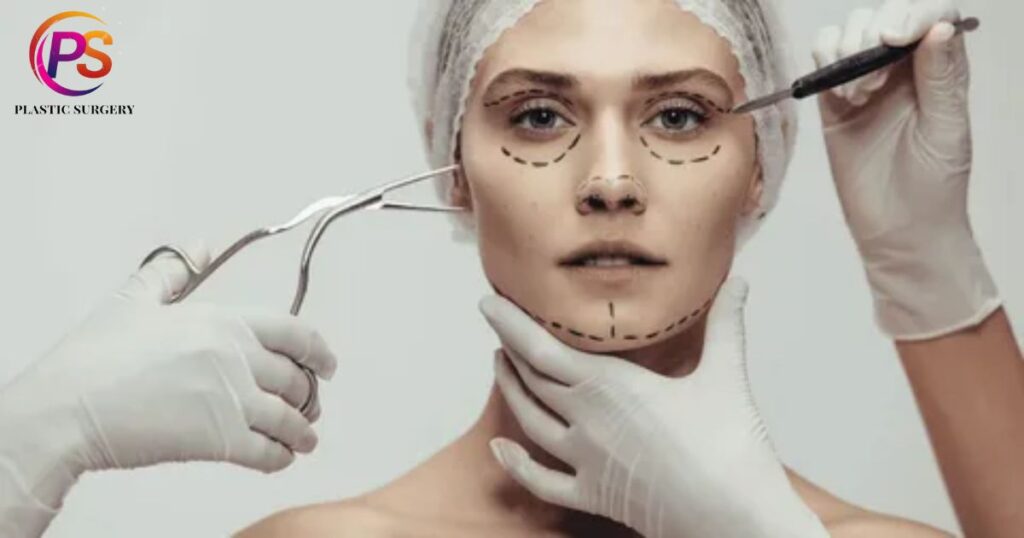Plastic surgery is called that because it helps shape or mold body parts. The word plastic comes from a Greek term meaning mold or form highlighting the surgery’s ability to change and enhance appearance.
Ever wondered why it’s called plastic surgery? The term originating from the Greek plastikos is not about plastics but denotes the art of shaping the body. This query unveils the misconception and reveals that the true essence lies in the creative remolding of one physical feature.
Plastic surgery is named after the Greek word “plastikos” meaning to mold or shape. It involves reshaping tissues to enhance appearance or function. The term plastic refers to the ability to sculpt and modify not the material.
How did plastic surgery get its name
I coined the term while performing reconstructive surgeries on soldiers with facial injuries. The term plastic in plastic surgery refers to reshaping rather than the material itself.
Originally plastic surgery focused on reconstructive procedures for injuries. Over time, it evolved to include cosmetic surgeries aimed at enhancing appearance. Today plastic surgery covers a broad spectrum of procedures, from reconstructive surgeries to cosmetic enhancements, helping individuals achieve their desired look.
Are plastic surgery and cosmetic surgery the same thing?

Are plastic surgery and cosmetic surgery the same thing?
Plastic surgery and cosmetic surgery are distinct branches within the broader field of surgical procedures. Plastic surgery encompasses both reconstructive and cosmetic surgeries, with a primary focus on restoring function and appearance. Reconstructive surgery is often performed to correct deformities resulting from accidents, congenital conditions, or medical treatments.
Cosmetic surgery, on the other hand, is centered around enhancing aesthetic features and achieving the patient’s desired look. Procedures like rhinoplasty, breast augmentation, and facelifts fall under the category of cosmetic surgery. While these terms are sometimes used interchangeably, it’s essential to recognize the nuanced differences in their objectives and the specific concerns they address.
How do I know if I need a cosmetic surgeon or plastic surgeon for the procedure I’m considering
Determining whether you need a cosmetic surgeon or a plastic surgeon depends on the nature of the procedure you’re considering. Here are some general guidelines:
- Cosmetic Concerns
If your primary goal is to enhance or alter your appearance for aesthetic reasons without addressing a medical issue, a cosmetic surgeon may be suitable. Cosmetic surgeons specialize in procedures focused on improving the look of specific features, such as rhinoplasty or breast augmentation.
- Medical or Reconstructive Needs
If your concerns involve correcting deformities, addressing injuries, or restoring normal function due to a medical condition, a plastic surgeon might be more appropriate. Plastic surgeons have comprehensive training that includes both reconstructive and cosmetic procedures, making them well-suited for a broader range of medical needs.
- Research Qualifications
Look into the qualifications and experience of the surgeon you’re considering. Check whether they are board-certified in plastic surgery or cosmetic surgery and inquire about their specific expertise in the procedure you’re interested in.
- Consultation with the Surgeon
Schedule a consultation with the surgeon to discuss your goals and concerns. A qualified surgeon can guide you on the most suitable approach based on your individual needs and help you understand the potential outcomes.
Always prioritize thorough research and open communication with the surgeon to ensure a clear understanding of their qualifications and the best course of action for your desired procedure.
How can I speak to a Coppergate Clinic surgeon

To speak with a Coppergate Clinic surgeon, you can initiate contact through their official website or by calling their provided phone number. Look for a “Contact Us” section on their website, where you’ll likely find information on how to schedule a consultation or speak with a surgeon directly.
You may need to fill out an online form or call the clinic to set up an appointment. Additionally, you can inquire about consultation availability and express your specific concerns to ensure you connect with the most appropriate surgeon for your needs.
The Growth of Plastic and Reconstructive Surgery

Plastic and reconstructive surgery have grown significantly in recent years. More people are choosing these procedures to enhance their appearance or address medical conditions. Advances in technology and techniques have made these surgeries safer and more accessible, contributing to the widespread growth of plastic and reconstructive surgery.
The increasing acceptance of these procedures in society has also played a role in their expansion. People now view plastic and reconstructive surgery as a viable option for improving self-esteem and overall well-being. As a result, the field continues to evolve, offering diverse options for individuals seeking both cosmetic enhancements and reconstructive solutions.
Common Reasons for Desiring Plastic Surgery
Many people consider plastic surgery to enhance their appearance and boost their self-confidence. Some wish to address physical imperfections or correct features they are unhappy with, such as a crooked nose or disproportionate breasts.
Additionally, individuals may seek plastic surgery to reverse signs of aging, like wrinkles or sagging skin. The desire for improved physical attractiveness and increased self-esteem are common motivations for those considering plastic surgery.
why is it called plastic surgery
Aspect | Explanation |
| Term Origin | The term plastic in plastic surgery comes from the Greek word plastikos, meaning mold or shape. It does not refer to the material plastic as we commonly understand it today. |
| Historical Context | The term was first used by the ancient Greeks to describe the art of molding or reshaping the body for reconstructive or aesthetic purposes. |
| Surgical Scope | Plastic surgery encompasses a wide range of procedures that involve reshaping, reconstructing, or enhancing various parts of the body. This includes both reconstructive surgery to restore function or appearance and cosmetic surgery to improve aesthetics. |
| Versatility | The term “plastic” reflects the versatility of these surgical procedures in molding andreshaping tissues to achieve desired outcomes. |
| Evolving Techniques | Over time, plastic surgery has evolved with advancements in surgical techniques and materials, but the term has persisted to describe the overarching field. |
Why is it called plastic surgery?
The term plastic comes from the Greek word plastikos, meaning mold or shape, reflecting the surgical procedure’s transformative nature.
Does plastic refer to the use of plastic materials?
No, it refers to shaping tissues. Sir Harold Gillies coined the term during World War I for reconstructive procedures, not materials.
Is plastic surgery only for cosmetic purposes?
No, it includes reconstructive procedures to restore function and appearance after injury or illness not just elective enhancements.
Are the changes from plastic surgery permanent?
Yes, the term plastic implies lasting transformations, often achieving permanent alterations in appearance or function.
When did the term plastic surgery originate?
Sir Harold Gillies coined the term during World War I highlighting its use for facial reconstruction after wartime injuries.
Does plastic surgery involve synthetic material?
No, despite the term it does not specifically involve plastics. It’s about reshaping tissues not using plastic materials.
Conclusion
Plastic surgery is named after the Greek word plastikos which means to shape or mold. It’s
not connected to the material plastic but instead focuses on reshaping the human body. This medical field covers a broad spectrum of procedures, from cosmetic enhancements to reconstructive surgeries. Surgeons utilize their skills to sculpt and reshape tissues, hence the aptness of the name. Plastic surgery is not solely about aesthetics it addresses functional aspects too.
Whether correcting a defect or enhancing beauty, its goal is to improve both appearance and overall well-being. The term plastic reflects the adaptable and transformative nature of the field highlighting its ability to mold and refine the human form for diverse purposes.

I’ve been doing plastic surgery for 8 years. I know how to make people look better. I’m good at it and like making sure my patients are happy.











